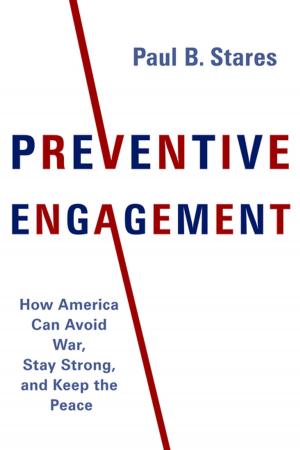Programs to Reduce Teen Dating Violence and Sexual Assault
Perspectives on What Works
Nonfiction, Social & Cultural Studies, Political Science, Politics, Social Services & Welfare, Social Science, Business & Finance| Author: | Arlene Weisz, Beverly Black | ISBN: | 9780231508827 |
| Publisher: | Columbia University Press | Publication: | May 5, 2009 |
| Imprint: | Columbia University Press | Language: | English |
| Author: | Arlene Weisz, Beverly Black |
| ISBN: | 9780231508827 |
| Publisher: | Columbia University Press |
| Publication: | May 5, 2009 |
| Imprint: | Columbia University Press |
| Language: | English |
Arlene Weisz and Beverly Black interview practitioners from more than fifty dating violence and sexual assault programs across the United States to provide a unique resource for effective teen dating violence prevention. Enhancing existing research with the shared wisdom of the nation's prevention community, Weisz and Black describe program goals and content, recruitment strategies, membership, structure, and community involvement in practitioners' own words. Their comprehensive approach reveals the core techniques that should be a part of any successful prevention program, including theoretical consistency, which contributes to sound content development, and peer education and youth leadership, which empower participants and keep programs relevant.
Weisz and Black show that multisession programs are most useful in preventing violence and assault, because they enable participants to learn new behaviors and change entrenched attitudes. Combining single- and mixed-gender sessions, as well as steering discussions away from the assignment of blame, also yield positive results. The authors demonstrate that productive education remains sensitive to differences in culture and sexual orientation and includes experiential exercises and role-playing. Manuals help in guiding educators and improving evaluation, but they should also allow adolescents to direct the discussion. Good programs regularly address teachers and parents. Ultimately, though, Weisz and Black find that the ideal program retains prevention educators long after the apprentice stage, encouraging self-evaluation and new interventions based on the wisdom that experience brings.
Arlene Weisz and Beverly Black interview practitioners from more than fifty dating violence and sexual assault programs across the United States to provide a unique resource for effective teen dating violence prevention. Enhancing existing research with the shared wisdom of the nation's prevention community, Weisz and Black describe program goals and content, recruitment strategies, membership, structure, and community involvement in practitioners' own words. Their comprehensive approach reveals the core techniques that should be a part of any successful prevention program, including theoretical consistency, which contributes to sound content development, and peer education and youth leadership, which empower participants and keep programs relevant.
Weisz and Black show that multisession programs are most useful in preventing violence and assault, because they enable participants to learn new behaviors and change entrenched attitudes. Combining single- and mixed-gender sessions, as well as steering discussions away from the assignment of blame, also yield positive results. The authors demonstrate that productive education remains sensitive to differences in culture and sexual orientation and includes experiential exercises and role-playing. Manuals help in guiding educators and improving evaluation, but they should also allow adolescents to direct the discussion. Good programs regularly address teachers and parents. Ultimately, though, Weisz and Black find that the ideal program retains prevention educators long after the apprentice stage, encouraging self-evaluation and new interventions based on the wisdom that experience brings.















